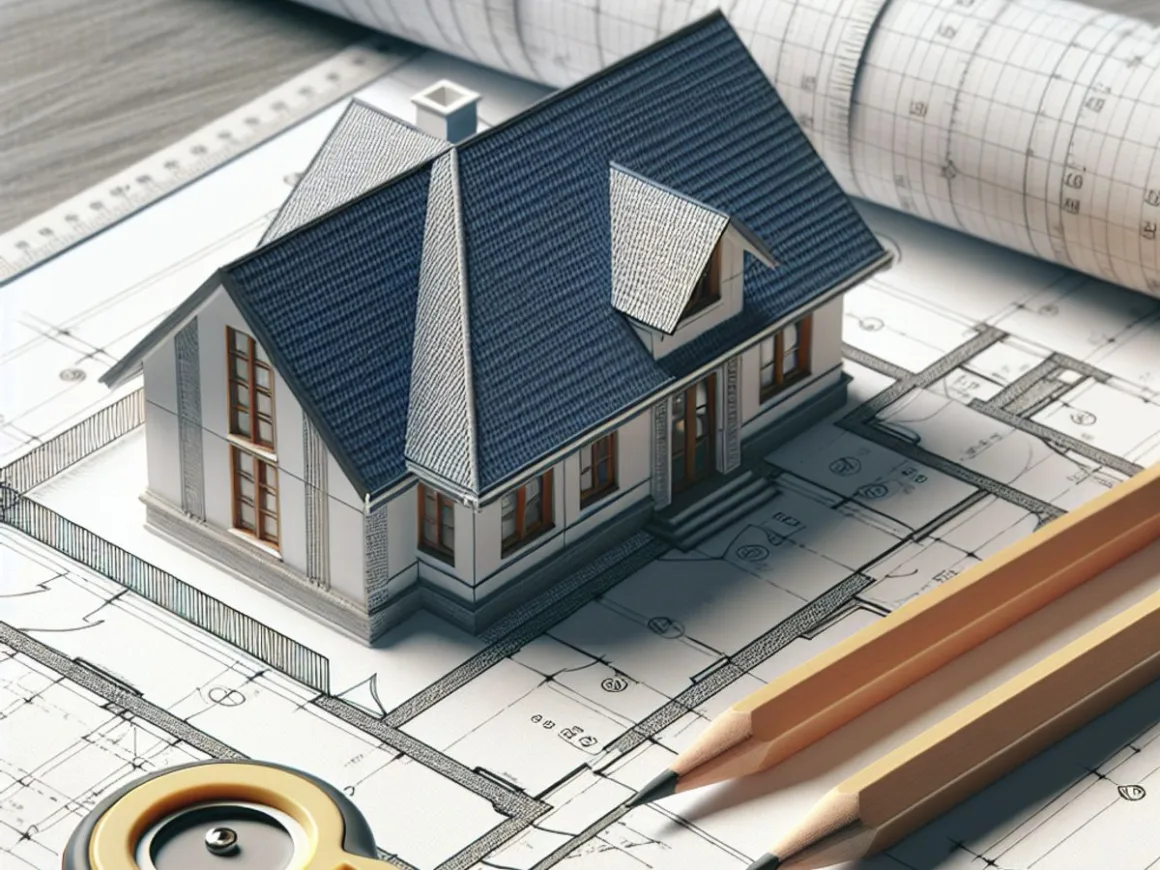Table of Contents Show
Embarking on a home construction project can be as exhilarating as it is daunting. The key to transforming this complex process into a streamlined and enjoyable journey lies in understanding and implementing essential components.
This article delves into the crucial elements needed to ensure your home construction project is efficient, cost-effective, and successful.
1. Strategic Planning: The Blueprint of Success
At the core of every successful home construction project is strategic planning. It goes beyond just creating a floor plan or selecting design elements; it’s a thorough process of establishing achievable goals, timelines, and budgets.
Defining the Scope
Begin by clearly defining what your project entails. Are you starting from scratch and building a brand-new home, or are you making improvements to an existing structure? Each option presents its unique challenges and requirements.
Setting a Budget
One crucial aspect of planning is budgeting. It’s important to establish a realistic budget early on and adhere to it throughout the project. This includes not only accounting for materials and labor costs but also factoring in any necessary permits, inspections, and contingency funds for unexpected expenses.
Utilize cost estimation tools or seek guidance from professionals to obtain an accurate understanding of the financial commitments involved.
Managing Time Effectively
Managing time is equally vital. Develop a practical timeline that outlines each stage of the construction process. This timeline should have some flexibility to accommodate potential delays while still maintaining structure to prevent prolonged disruptions.
Regular meetings with your construction team can promote clear communication and ensure everyone is working towards the same objectives while staying on schedule.
2. The Role of Higher Education in Project Handling
A successful home construction project requires more than just financial resources and a solid plan. It demands a deep understanding of the construction process, which is where higher education plays a pivotal role. Specifically, an online construction management degree can be invaluable for those looking to oversee their construction projects effectively.
This degree equips individuals with comprehensive knowledge about construction methods, project management, and legal aspects of building. It fosters skills in budgeting, scheduling, and ensuring quality standards, all of which are essential in streamlining the construction process.
Graduates of such programs are better prepared to anticipate challenges, negotiate with contractors, and ensure that the project adheres to both timelines and budgets.
Moreover, this education can provide insights into the latest construction technologies and trends, enabling homeowners to make informed decisions about sustainable materials, energy efficiency, and innovative design solutions.
Ultimately, the knowledge gained from a construction management degree can empower homeowners to manage their projects more effectively, leading to successful and satisfying outcomes.
3. Effective Communication: The Cornerstone of Collaboration
Communication is the cornerstone of any successful construction project. It involves constant interaction among various stakeholders, including architects, contractors, engineers, and suppliers. Clear, concise, and continuous communication can prevent misunderstandings, ensure that everyone is aligned with the project goals, and facilitate swift resolution of issues.
Utilize modern communication tools like project management software to keep track of progress, share documents, and maintain a central communication hub. Regular site meetings are also crucial for discussing progress, addressing concerns, and making timely decisions.
Remember, effective communication is a two-way street; be open to suggestions and feedback from your team, as they bring valuable expertise to the table.
4. Embracing Technology for Efficiency
In today’s digital age, leveraging technology is non-negotiable for streamlining a home construction project. From 3D modeling software that helps visualize the end product to project management tools that track progress and manage tasks, technology can significantly enhance efficiency.
Invest in software that allows for easy collaboration, real-time updates, and data sharing. This not only saves time but also reduces the risk of errors. Technologies like Building Information Modeling (BIM) can provide a detailed digital representation of the physical and functional characteristics of your project, enabling better decision-making throughout the construction process.
Moreover, technology can play a crucial role in resource management. Tools that help track inventory, manage schedules, and monitor budgets can keep the project within its financial and temporal constraints.
5. Prioritizing Quality Control
The final essential component in streamlining your home construction project is a strong quality control system. Ensuring that all materials and workmanship meet or exceed industry standards is crucial to the longevity and safety of your home.
Implement regular new construction inspections at different stages of the construction process to identify and rectify any issues early on. Engage with experienced and reputable contractors who are committed to quality and have a proven track record. Also, consider hiring an independent inspector to provide an unbiased assessment of the construction quality.
One of the less discussed yet equally important, aspects of streamlining home construction is navigating the maze of legal and regulatory frameworks. This involves understanding and complying with local zoning laws, building codes, and permit requirements. Each locality has its own set of regulations governing construction, which can significantly impact your project’s scope, design, and timeline.
Begin by researching the specific requirements in your area. This might include setback restrictions, height limitations, or specific building standards. Securing the necessary permits before commencing construction is crucial to avoid legal complications and potential fines. This process can be time-consuming, so factor this into your project timeline.
One of the less discussed, yet equally important, aspects of streamlining home construction is navigating the maze of legal and regulatory frameworks. This involves understanding and complying with local zoning laws, building codes, and permit requirements. Each locality has its own set of regulations governing construction, which can significantly impact your project’s scope, design, and timeline.
Begin by researching the specific requirements in your area. This might include setback restrictions, height limitations, or specific building standards. Securing the necessary permits before commencing construction is crucial to avoid legal complications and potential fines. This process can be time-consuming, so factor this into your project timeline.
7. Sustainable Practices and Green Building
Incorporating sustainable practices and green building principles is no longer just a trend but a vital component of modern home construction. Sustainable construction not only benefits the environment but can also lead to long-term cost savings and enhance the overall value of your home.
Start by considering energy-efficient designs and materials. This could include the use of renewable energy sources such as solar panels, energy-efficient appliances, and sustainable building materials. These choices not only reduce your carbon footprint but can also lower energy bills.
Conclusion
Streamlining a home construction project is achievable through meticulous planning, educational preparedness, effective communication, technological integration, and stringent quality control.
By focusing on these essential components, you can navigate the complexities of construction with confidence and look forward to the successful completion of your dream home.
FAQs (Frequently Asked Questions)
At the core of every successful home construction project is defining the scope, setting a budget, and managing time effectively. These strategic planning components lay the blueprint for success.
Budgeting is crucial in home construction project planning. It’s important to set a realistic budget to ensure that the project stays on track financially.
Managing time effectively is vital in a home construction project as it helps in developing a practical timeline for completing the project within the set deadlines.
A successful home construction project requires more than just technical skills. It also requires higher education in project handling, which encompasses strategic planning, effective communication, embracing technology for efficiency, prioritizing quality control, and navigating legal and regulatory frameworks.
Communication is the cornerstone of any successful construction collaboration. Effective communication ensures that all stakeholders are aligned and informed throughout the project.
In today’s digital age, leveraging technology is non-negotiable as it enhances efficiency and productivity in home construction projects.
The final essential component in streamlining a home construction project is prioritizing quality control to ensure that the end result meets high standards of excellence.
Legal and regulatory frameworks are important in home construction projects as they ensure compliance with laws and regulations, which is essential for the success and sustainability of the project.
Incorporating sustainable practices and green building principles into home construction projects involves using environmentally friendly materials, reducing energy consumption, and minimizing waste generation to create eco-friendly homes.










